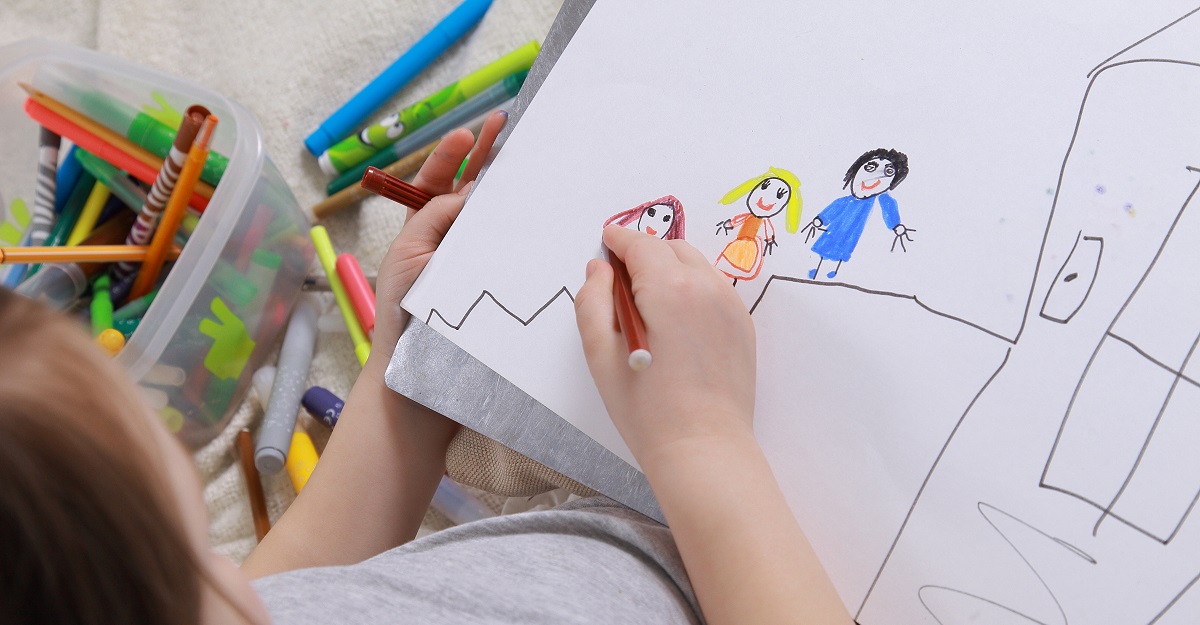How to Spot – and Deal With – a Narcissist
Published By Justin Baksh, LMHC, MCAP
September 4, 2023

Have you ever come across a person who is excessively self-absorbed? An individual who has an exaggerated sense of self-worth, a perpetual desire for adoration, and an absence of compassion for other people? These are all characteristics of Narcissistic Personality Disorder. In other words, you may be dealing with a narcissist.
What is Narcissistic Personality Disorder?
Narcissistic Personality Disorder (NPD) is a mental health condition characterized by a long-term pattern of grandiosity, an excessive need for admiration, and an exaggerated sense of self-importance.
Individuals with NPD often struggle with maintaining healthy relationships, as they tend to have little or no concern for other people’s feelings. While a certain degree of confidence and self-esteem is essential for success in life, NPD goes beyond ordinary pride or vanity.
It often leads to problems in various areas of life, including personal relationships, work situations, and social adjustments.
How Prevalent is Narcissism?
Given that the traits associated with narcissism can be subtle or extreme, determining the exact prevalence can be challenging. As such, there have been varying reports of prevalence in the United States of America,
A 2023 article from the National Library of Medicine explains the difficulty of obtaining accurate statistical figures on the prevalence of NPD. Case in point: Prevalence rates from community samples range from 0.5% to 5% of the US population. However, in clinical settings, NPD appears to occur at rate of 1% to 15%.
Narcissism may coexist with other mental disorders, rendering its diagnosis challenging. Substance use disorders are among the most comorbid conditions. Other personality disorders such as antisocial personality disorder, borderline personality disorder, histrionic personality disorder, and schizotypal personality disorder are also common in people with NPD.
Why is it Important to Know About Narcissism?
Understanding Narcissistic Personality Disorder is crucial for several reasons. We learn more to save ourselves pain, and hopefully help those who have it recognize and seek treatment for it.
Why Should We Learn About Narcissism?
- Early intervention and treatment: Recognizing the symptoms early can help individuals with narcissism seek appropriate treatment that may help mitigate the disorder’s impact on their lives.
- Dealing with narcissists: By understanding NPD’s traits, we can develop better coping strategies when interacting with people who may have this disorder. This will aid in setting healthy boundaries and maintaining emotional balance.
- Increasing public awareness: Being educated about NPD reduces the stigma surrounding it, fosters compassion for those struggling with NPD and encourages supportive conversations.
- Strengthening relationships: Understanding the disorder can help friends, family members, and significant others support and navigate their relationship with someone with NPD. It enables them to identify patterns, take necessary precautions, and set realistic expectations.
How to Spot a Narcissist
Narcissism can manifest subtly, making it challenging to identify. However, understanding the characteristics, symptoms, and red flags can help you determine if someone in your life may be struggling with NPD.
17 Signs of a Narcissist
1. Grandiosity: Narcissists often have an over-inflated sense of self-importance. They may believe they are better than others and deserve special treatment.
2. Lack of empathy: Individuals with NPD typically do not understand or care about other people’s feelings or needs.
3. Desire for adoration: People with narcissism crave admiration and attention from others, often at the expense of genuine relationships.
4. Exploitative behavior: Narcissists may use other people for their personal gain without any consideration for their well-being.
5. Envy: Individuals with narcissistic personality disorder might feel envious of others’ success or accomplishments, which may fuel their desire to be perceived as superior.
6. Exaggeration of achievements and talents: They overinflate performance metrics or take all credit for what may have been a team effort.
7. Preoccupation with fantasies about beauty, power, or success: While it would be hard to read the mind of a narcissist, if you did, you’d find a lot of daydreaming about being drop dead gorgeous, in a leadership position, or outrageously wealthy.
8. Demanding constant praise and admiration: Narcissists need supply. Supply equals attention – and they do tend to prefer the positive kind,
9. Belittling others to boost their sense of superiority: Another way narcissists feel better about themselves is to put down others. If they are inferior, the narcissist must be superior.
10. Manipulating close relationships: What they need comes from other people. If they have to manipulate to get it, they will.
11. Insensitivity to other people’s emotions and feelings: Narcissists are stuck at the emotional maturity of an infant or toddler. Other people and their emotions are nonexistent in their universe.
12. Unwillingness to accept responsibility for mistakes: Again, it takes a certain amount of maturity to admit that you were wrong. Narcissists lack this ability.
13. Disregard for other people’s boundaries: Individuals with NPD might not respect personal boundaries or privacy.
14. Difficulty maintaining close relationships: People with NPD often have turbulent relationships, as they struggle to maintain genuine connections and prioritize their needs over the needs of others.
15. Excessive attention-seeking: Attention and recognition can become an addiction for those with NPD, leading them to constantly seek out validation from others.
16. Extremely defensive reactions: A person with narcissistic personality disorder might react aggressively or defensively when confronted about their behavior or criticized.
17. Idealize-devalue-discard cycle: This pattern, in which a person with NPD initially showers someone with praise, then devalues them, and finally discards them, is common in people affected by this disorder.
The Impact of Narcissistic Personality Disorder on Relationships and Work
People with NPD often have troubled relationships and work experiences because they struggle to truly understand and connect with others.
Effects on Personal Relationships
Narcissistic Personality Disorder can make it incredibly challenging for a person to maintain healthy relationships. Their lack of empathy makes it difficult for them to truly understand or care about others’ feelings, leading to frequent conflicts and misunderstandings. Additionally, their constant need for admiration can cause them to be overly possessive or jealous. Many partners of those with NPD often feel used, manipulated, and undervalued.
Implications for Work and Professional Interactions
At work, individuals with NPD may struggle to form productive collaborations because they constantly seek validation and recognition. Their inflated self-image might lead them to take on tasks without understanding their limitations or refuse criticism when warranted. Furthermore, their propensity for manipulating others can create unhealthy power dynamics that may eventually disrupt team cohesion or drive away talented colleagues.
Challenges in Seeking Treatment and Recovery from NPD
Treatment for NPD requires a collaborative effort between the patient and their healthcare provider, but overcoming their denial and resistance to change is often the first major hurdle.
One of the most significant obstacles in treating Narcissistic Personality Disorder is the person’s unwillingness to accept that they have a problem. Their inflated self-image often prevents them from recognizing the negative impact their behavior has on themselves and others. Moreover, treatment itself can be challenging as it involves confronting deep-rooted patterns of thought and behavior.
Another issue is the lack of specialized treatments for NPD. Many mental health professionals do not feel fully equipped to address the complex nature of Narcissistic Personality Disorder, leading to a lack of accessible and effective care options.
Strategies for Dealing with Narcissistic Individuals
Dealing with narcissistic individuals can be emotionally draining and mentally challenging. Whether it’s a coworker, a family member, or a friend displaying these traits, it’s essential to know how to handle interactions protect yourself from the impact of their behavior.
7 Ways to Deal with a Narcissist
1. Avoidance: Obviously, if you can, avoid becoming involved with the narcissist in the first place. There are times when this is not possible, for example, when you have a narcissist on the job or in your family circle. However, when you can, be discerning about evaluating potential connections. It doesn’t take long to spot a narcissist. They may make a wonderful first impression – especially in the case of love bombing, with a new romantic interest, for example – however, it soon starts to fall apart once you get past the initial phases of a relationship. The mask eventually slips.
2. Setting Boundaries and Managing Expectations: Setting personal boundaries is one of the most crucial steps in dealing with narcissistic individuals. Clearly communicate your limits regarding what behaviors you find acceptable or unacceptable. Be firm about these boundaries and refuse to engage if they have overstepped. It is also important to manage your expectations when interacting with narcissistic people, as they may often disappoint or disrespect you due to their tendencies.
3.Seeking Support from Loved Ones and Professionals: It’s essential not to isolate yourself when dealing with a narcissist. Sharing your experiences with trusted friends and family can provide emotional support, validation, and guidance on navigating this challenging relationship. Seeking professional help such as therapy or counseling can also grant you valuable insights into understanding and dealing with the situation from an unbiased perspective.
4. Developing Effective Communication Strategies: As narcissistic individuals often distort reality or exhibit manipulative behavior, communicating clearly and assertively is vital when addressing them. Stick to factual statements and avoid getting caught in circular arguments that may derail the conversation. Maintain your composure during discussions – remaining calm helps you maintain control over the interaction.
5. Grey-Rocking It: If communicating with a narcissist is not working, the grey rock method may help. It involves becoming an unresponsive and uninteresting as a plain grey rock. As the narcissist craves supply, they will eventually grow tired of not getting it from you. They will move on their next victim.
6. Self-Care and Coping Mechanisms: Caring for yourself physically, mentally, and emotionally is crucial when enduring interactions with narcissistic individuals. Practice regular self-care exercises such as journaling, meditation, exercise, and nurturing hobbies to maintain your emotional well-being. Ensure that you also prioritize maintaining healthy relationships with those who genuinely support and care for you.
7. Leaving the Narcissist: Being near a narcissist is draining, if not downright dangerous to your mental health. You may begin to question your grasp on reality, taking whatever you are hearing from the narcissist at face value. That’s why, whenever possible, it’s wise to try to get away from the narcissist. You could start looking for a new job, take on a hobby that takes you out of the house, or look for outside help in moving out. If you are living with a narcissist, consider your departure to be on the same level as leaving a domestic abuse situation, and seek out resources that aid in that scenario. Once successful in separating yourself from the narcissist, do not be persuaded to go back. No contact is the best course of action.
Narcissistic Personality Disorder is a complex condition that deeply affects individuals and society. Understanding it empowers us to handle our encounters and relationships with individuals who exhibit narcissistic tendencies better. Being aware of NPD helps provide appropriate support to those affected.
- Gillette, H. (2022, March 11). What Is Love Bombing and Why Do Narcissists Do It? Psych Central.
- Grey rock method: What it is and how to use it effectively. (2021, February 2). www.medicalnewstoday.com.
- How to Leave a Narcissist or Toxic Relationship | Psychology Today. (n.d.). www.psychologytoday.com.
- Mitra, P., & Fluyau, D. (2022, May 1). Narcissistic Personality Disorder. PubMed; StatPearls Publishing.






